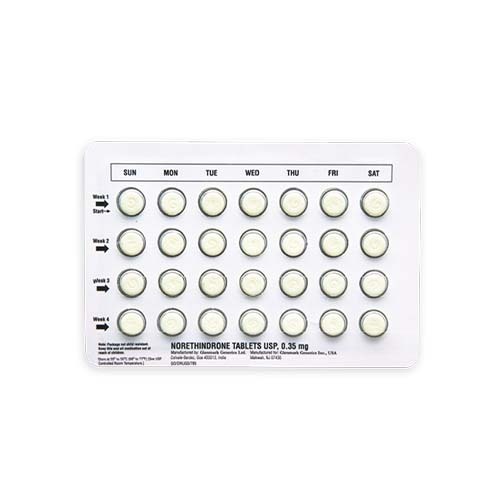If you prefer this specific medication, let your provider know the medication name and strength in the preference section of the health assessment.
Why Nurx?
-
 Free, fast shipping with automatic refills for items fulfilled by our pharmacy. Easily pause or cancel anytime.
Free, fast shipping with automatic refills for items fulfilled by our pharmacy. Easily pause or cancel anytime. -
 Clinically-recommended medications & affordable out-of-pocket prices.
Clinically-recommended medications & affordable out-of-pocket prices. -
 Unlimited messaging for one year with licensed providers.
Unlimited messaging for one year with licensed providers.
Product details
Take control of your sexual and reproductive health with Norethindrone. This medication is an oral birth control that prevents pregnancy by changing vaginal fluids to prevent sperm from reaching an egg. In some women, Norethindrone also prevents the release of an egg. If you are prone to the side effects that come with estrogen-based birth control medications, then consider giving Norethindrone a try.
Birth control type:
Progestin-only pill
Recommended for:
✓ Reducing painful periods
✓ Lighter, shorter and more regular periods
| Price with Insurance | Out-of-Pocket Price |
| As little as $0 per month for the medication | As little as $15 per month for the medication |
We also charge a $30 medication consultation, which includes unlimited access to our medical team for a full year.
See why 1,000,000+ patients have trusted Nurx for medical care online:
| Nurx | Other Brands |
| ✓ Affordable ✓ Insurance accepted ✓ No subscription needed ✓ Unlimited, ongoing medical care from an app ✓ $0 shipping — always |
Expensive Insurance not accepted Subscription required Medical care limited by number of credits $5 to $20 shipping fees |
Generic versions:
Errin, Ortho Micronor, Camila, Deblitane, Heather, Jencycla, Jolivette, Lyza, Nor-Qd, Nora-BE, Norlyda, Norlyroc, Sharobel
For our refund and return policy, please see our terms of use.
Additional Details
FAQ


How It Works






